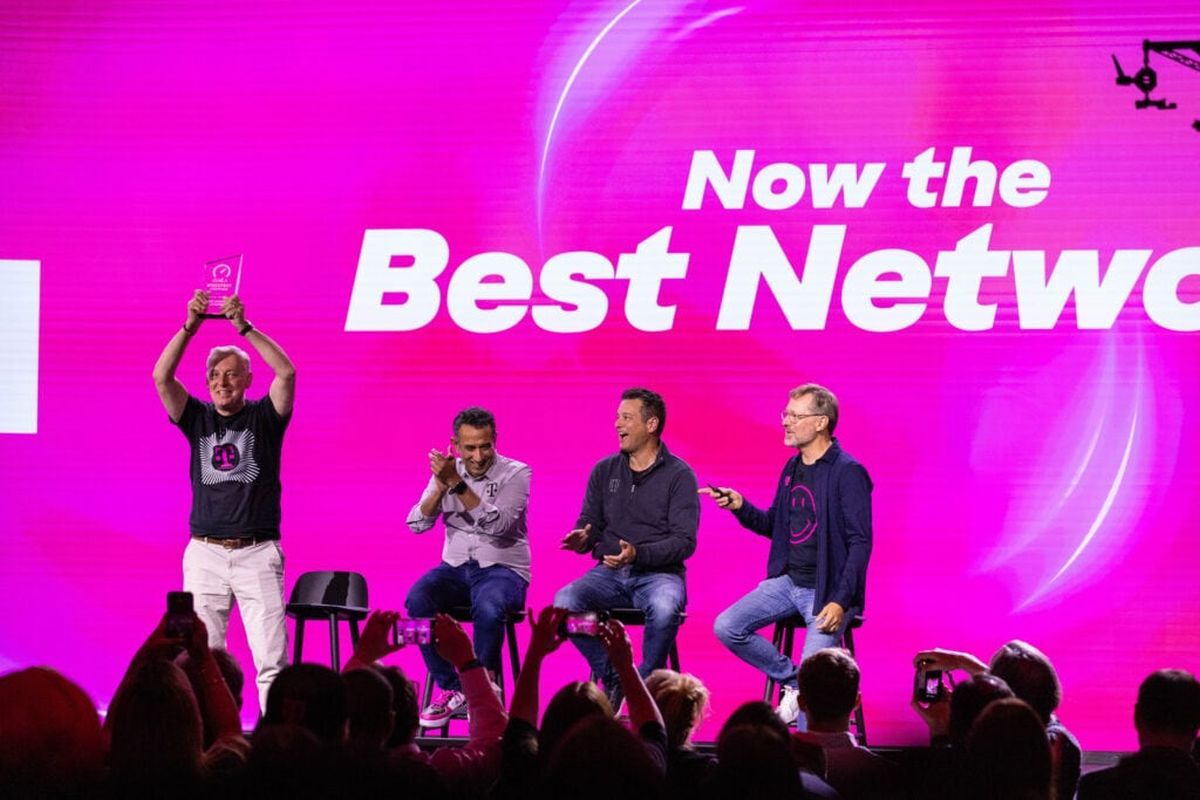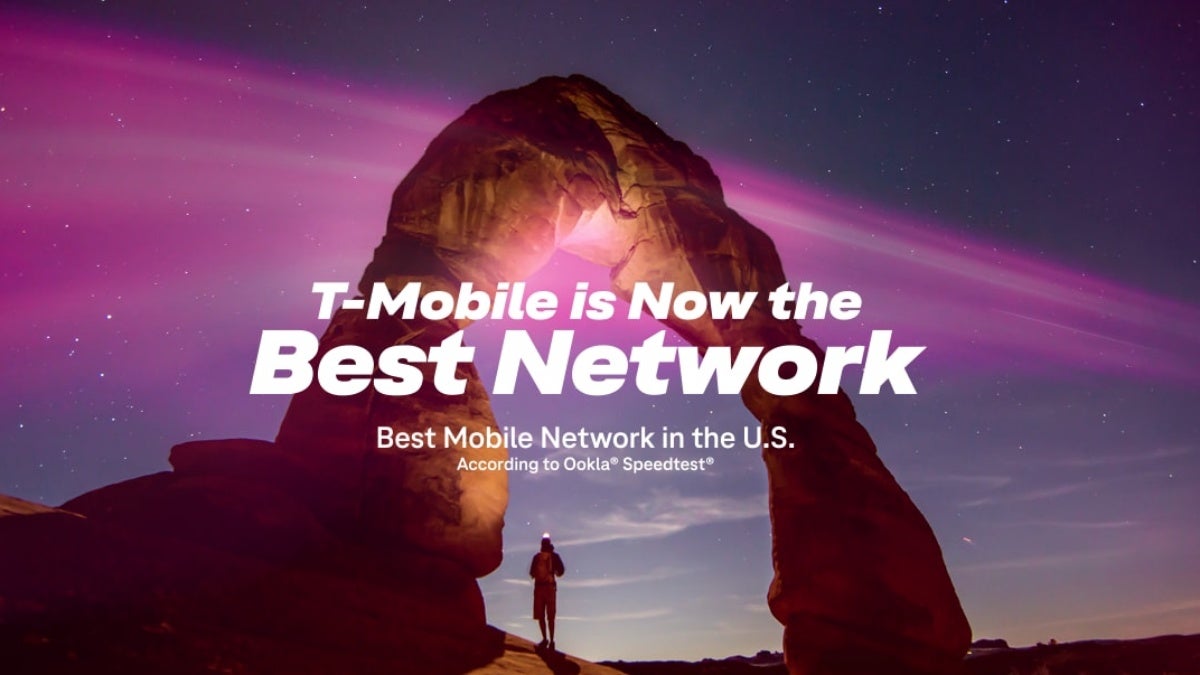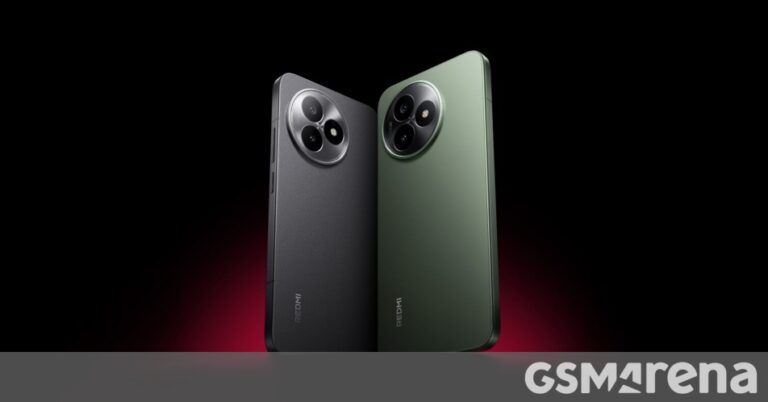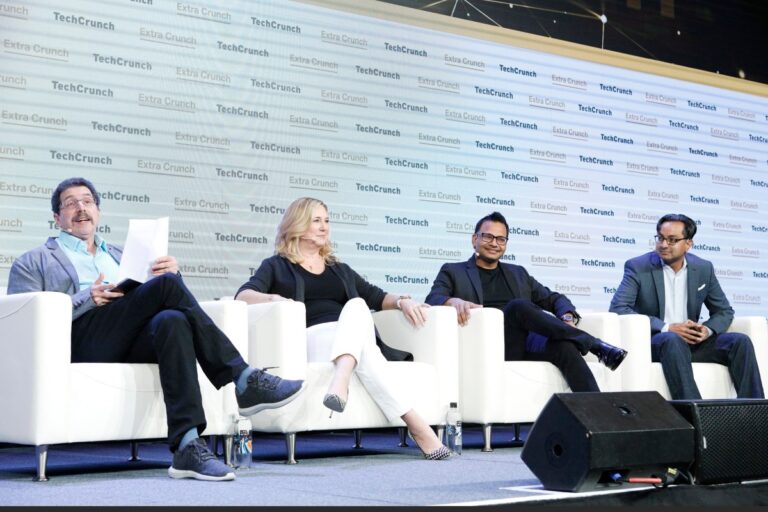Monday, June 23, 2025 was
supposed to be a big day for
T-Mobile. Five years after the official completion of a merger that transformed the US wireless industry as it was known in 2020, Magenta earned the nation’s “best mobile network” prize from Ookla,
celebrating its latest momentous achievement by adding even more value to its “most popular” plans and confirming the highly anticipated T-Satellite nationwide launch date.
But what would have been a noisy and attention-grabbing “Un-carrier” event just a few years ago ended up looking like little more than another typical Monday at the office for CEO Mike Sievert, COO Srini Gopalan, and President of Marketing, Strategy, and Products Mike Katz (seen below trying their best to hype up an ultimately largely meaningless marketing label).
Why don’t you care about T-Mo’s achievements anymore?
Before I let you all answer that for yourselves, I’d like to try to guess some of the reasons why
T-Mobile customers no longer seem as interested (and as impressed) as they used to be by such titles as the one bestowed by Ookla. By the way, I’m not just saying that, instead basing my assessment on the relatively poor views figures generated by our article detailing T-Mo’s latest win over
Verizon and
AT&T and the general indifference with which the otherwise super-vocal Redditors on
the “Un-official subreddit of the Re-carrier” received the big news at the beginning of the week.
This almost looks like a parody of an Un-carrier event from back in the good old days. | Image Credit — T-Mobile
Let’s not beat it around the bush, you’re far more open to debating and commenting on things like
new plans,
revised plan features and conditions, as well as every little detail concerning the
universally reviled T-Life app, than the results of hundreds of millions of network speed and reliability tests performed across the nation. And I feel like the simplest explanation could also be the most valid – no one cares about the other guy (or girl), let alone a theoretical user.
That’s obviously the problem with all these studies conducted by Ookla,
Opensignal,
RootMetrics, and any other such independent analytics firm. As vast and as scientific as their experiments may be, they’re still theoretical and thus not representative of
your individual user experience. And unfortunately for
T-Mobile, all the network performance trophies collected in the last half a decade don’t seem to have done much to silence the criticism from individual customers with specific coverage issues that simply won’t go away and underwhelming speeds that look unable to get better.
Absolutely 100% false. My service is so bad. As soon as I leave city limits my service is just laughable. Dropped calls, constant static and low quality calls, speeds low. I had them in 2014 and they were bad then, 11 years later they’re still awful and haven’t improved much.
Several_Resolution92 on Reddit, June 23, 2025
While the number of T-Mo subscribers complaining of various problems every… single… time the “Un-carrier” wins a new gold ribbon is by no means large in the grand scheme of things, I can totally understand if your distrust in the real-world relevance of speed and network availability tests is fueled by these negative comments… or your own sub-par experience. After all, who cares if some people can (theoretically) squeeze 200+ Mbps download speed averages out of their T-Mobile phones when you barely hit 20 or 30 Mbps most of the time?
As odd as it may sound, I feel like the completely opposite explanation can also work, as
T-Mobile,
Verizon, and
AT&T have all improved both their speeds and coverage over the last few years to such a remarkable degree that the competition for first place in Ookla reports no longer matters to most people. After all, not everybody needs 200 Mbps downloads to be happy, and as long as
you can typically hit 50 or 60 Mbps, you might not care if the weather is (slightly) warmer on the other side.
T-Mobile has to shift its focus elsewhere
No matter the reason for your indifference, it’s pretty clear that Magenta has to give (most of) its customers something else than empty titles, generic achievements, and big numbers that may or may not coincide with a user’s real network experience. Something better, something more palpable, and something with a clearer and bigger value for one’s day-to-day life.
What must worry T-Mo’s powers that be the most is the positive attention
Verizon has been generating for a little while now, culminating with
a “Project 624” announcement that felt pretty underwhelming to me personally, but that was surprisingly well-received on Reddit and other places around the web. Of course, those gift cards helped, and so did a
new T-Mobile-style promotion.
That’s right, Verizon is so very clearly taking pages, nay, entire chapters from the old “Un-carrier” playbook that T-Mobile absolutely needs to rethink its ways and go back to its roots before it becomes an underdog again. And that needs to happen yesterday!






